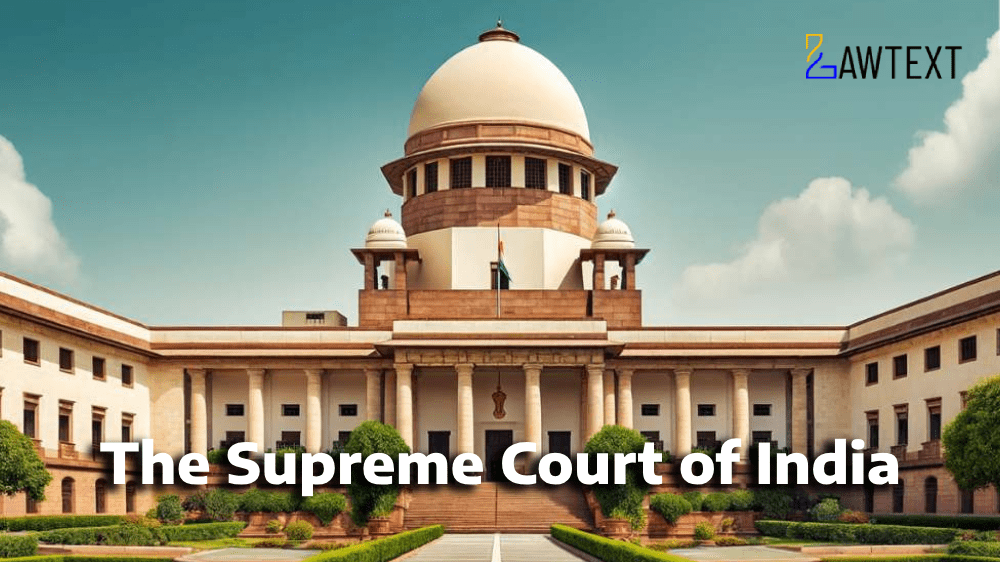

The doctrine of Proportionality: The Court held that the decision to cancel the entire recruitment process was proportionate to the gravity of the irregularities, which included violations of the reservation policy and lack of fair representation. (Para 45)
Wednesbury Unreasonableness: The Court found that the State’s decision was not so unreasonable that no reasonable authority could have taken it. The irregularities highlighted by the PCCF provided sufficient justification for the cancellation. (Para 45)
Right to Public Employment: While selected candidates do not have an indefeasible right to appointment, the State must act fairly and not arbitrarily when cancelling a recruitment process. (Para 53)
Judicial Review: The Court emphasized that judicial review of administrative decisions is limited and should not substitute the decision of the executive unless it is arbitrary or unreasonable. (Para 39)
The Supreme Court held that the decision to cancel the select list was neither arbitrary nor unreasonable. The Court applied the doctrines of Wednesbury unreasonableness and proportionality and found that the State’s decision was justified given the serious irregularities in the recruitment process. The Court quashed the High Court’s judgment and allowed the State to initiate a fresh recruitment process.
The Supreme Court upheld the State’s decision to cancel the select list, emphasizing the importance of fair representation and adherence to the reservation policy in public employment. The Court allowed the State to initiate a fresh recruitment process, ensuring that the irregularities of the previous process were not repeated.
Major Acts:
Constitution of India (COI), Article 14, 16(1), 142, 226 – Right to Equality, Right to Public Employment, Judicial Review, and Supreme Court’s Extraordinary Powers.
Assam Forest Protection Force (AFPF) – Recruitment Rules and Executive Instructions under Article 162 of the Constitution.
Recruitment Process – Violation of Reservation Policy – Fair Representation – Doctrine of Proportionality – Wednesbury Unreasonableness – Judicial Review – Right to Public Employment – Cancellation of Select List – Fresh Recruitment.
Nature of the Litigation:
The case arose from the cancellation of a select list for the recruitment of 104 Constables in the Assam Forest Protection Force (AFPF) by the State of Assam.
The recruitment process, initiated in 2014, was challenged due to alleged irregularities, including violations of the reservation policy and lack of representation from certain districts.
Who is Asking the Court and for What Remedy?
The respondents (selected candidates) challenged the cancellation of the select list and sought reinstatement of the recruitment process.
The State of Assam defended its decision to cancel the list, citing serious irregularities and violations of the reservation policy.
Reason for Filing the Case:
The respondents claimed that the cancellation was arbitrary and that the irregularities could have been rectified without scrapping the entire process.
The State argued that the process was tainted by bias, favouritism, and violations of the reservation policy, warranting cancellation.
What Has Already Been Decided Until Now?
The Gauhati High Court had ruled in favour of the respondents, holding that the irregularities could be rectified without cancelling the entire process.
The State appealed to the Supreme Court, challenging the High Court’s decision.
Whether the High Court was justified in interfering with the decision to cancel the select list and directing the process to be carried forward?
Whether the decision to cancel the select list was vulnerable under the doctrines of Wednesbury unreasonableness or proportionality?
Whether the respondents had a legal right to invoke writ jurisdiction under Article 226 of the Constitution?
Whether the appellants urged new grounds to support the cancellation beyond those initially assigned?
Appellants (State of Assam):
The selection process was tainted by serious irregularities, including violations of the reservation policy and lack of representation from certain districts.
The decision to cancel the select list was based on a detailed note by the Principal Chief Conservator of Forest (PCCF), which highlighted these irregularities.
The respondents had no indefeasible right to appointment, and the State was within its rights to cancel the process.
Respondents (Selected Candidates):
The cancellation was arbitrary, and the irregularities could have been rectified without scrapping the entire process.
No inquiry was conducted to verify the alleged irregularities, and the decision was based solely on the PCCF’s note.
The respondents had a legitimate expectation of appointment after being selected.
Citation: 2025 LawText (SC) (3) 75
Case Number: CIVIL APPEAL NO.2350 OF 2025
Date of Decision: 2025-03-07
Case Title: STATE OF ASSAM & ORS. VERSUS ARABINDA RABHA & ORS.
Before Judge: (DIPANKAR DATTA J. , MANMOHAN J.)
Appellant: STATE OF ASSAM & ORS.
Respondent: ARABINDA RABHA & ORS.